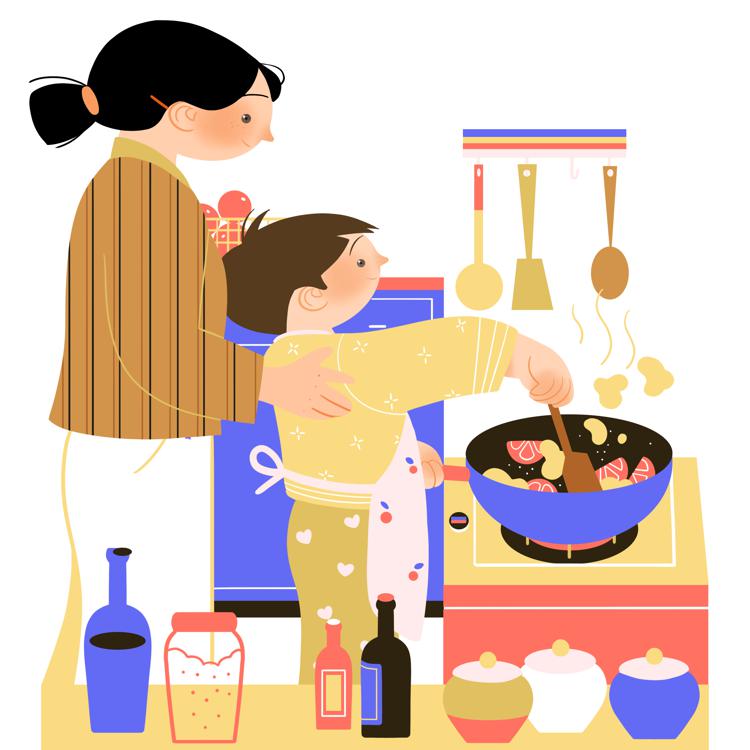Cooking lessons not just courses in classrooms


The Ministry of Education recently released the compulsory education curriculum content standards and compulsory labor education standards for 2022.
This is the first document on labor education curriculum content standards since labor education was included in the education policy in 2018 and has therefore attracted wide social attention and sparked heated public discussions.
The curriculum requires students of different grades to develop different hands-on skills such as cleaning and cooking. What has left many wondering is: How to teach labor classes and grade them? Should full-time teachers be appointed for labor education? And how can labor education continue after school?
These are practical questions.
Since labor as a subject is different from subjects such as the Chinese and English languages, and mathematics, it is unlikely to be taught, tested and scored in the same way. It's necessary to first understand the concept and characteristics of labor education, in order to answer the questions-or solve the problems.
Labor education has been made a part of compulsory education, so students can be taught hands-on practical skills and urged to practice and master them.
Labor education is not about acquiring academic knowledge in the classroom but about learning by practice. Hence, if the methods of imparting labor education are not spelled out, the curriculum cannot be practically used to teach (or train) the students.
In addition, not every school and family can provide minors with the facilities required by labor education. For instance, it's difficult for urban households to raise poultry. Materials for printing and dyeing, wood-work and electronics are not available in most schools. The items listed in the document can only be acquired or available in certain places and under certain conditions.
Moreover, labor education requires cooperation among school, family and society. Some parents, worried that labor education may become a burden on them or be risky for their children, say they would rather let their kids read books or do homework after school, while others are unfamiliar with the curriculum content standards or find it hard to put it into practice.
So, without an evaluation mechanism, labor education could become a mere formality. Plus, labor education can't be evaluated through tests. Real evaluation would depend on the role labor plays in the development of a person-on whether he/she has become a better, healthier person.
Further, many people see labor education as an addition to the exam-oriented education system. Some media outlets have even said labor education will become a part of zhongkao (senior high school entrance examination) and gaokao (college entrance examination) in the near future, and students who cannot do laundry or cook will get lower scores in the two exams.
Such short-sightedness will ultimately lead to a decline in people's enthusiasm for labor education.
The question then is: How do we evaluate the progress of labor education? It can be done by adopting diverse approaches. For example, the evaluation criteria should vary based on the students' age and their training goals. To prevent labor education from becoming a mere formality, the key is to make labor valuable and meaningful, a part of life itself.
It is also important to not commit mistakes like asking students in one labor education class to move a pile of bricks from one place to another, and another class of students to move the bricks back, because that is anything but labor education.
What is necessary is to make the students understand the meaning of labor and its value to life. Real labor education can help people to be active, creative and happy in life.
The goal of labor education can't be achieved in the classroom. Only if we integrate labor with life can we truly educate the students about the real importance and value of labor and its benefits.
The author is a senior researcher at the National Institute of Education Sciences. The views don't necessary reflect those of China Daily.
If you have a specific expertise, or would like to share your thought about our stories, then send us your writings at opinion@chinadaily.com.cn, and comment@chinadaily.com.cn.


































